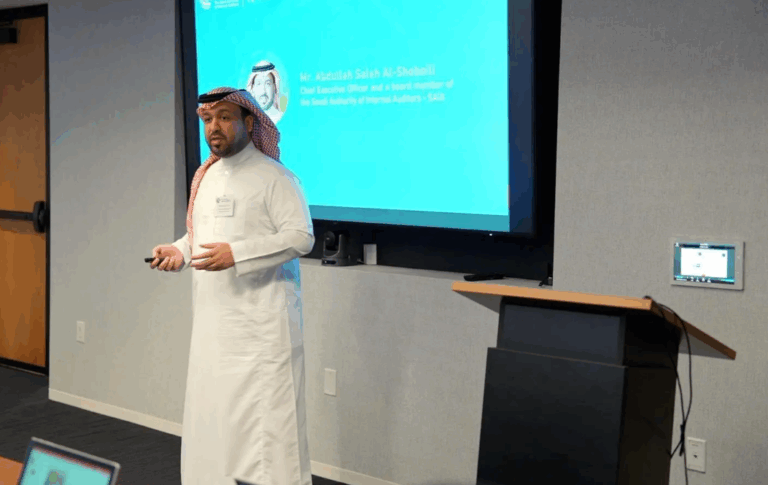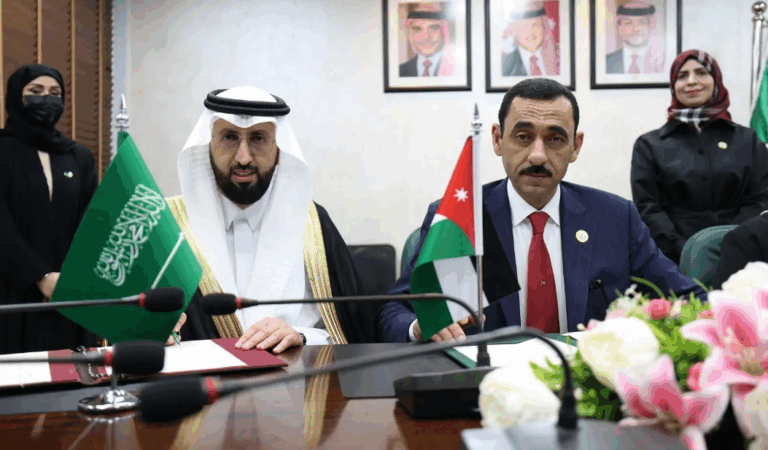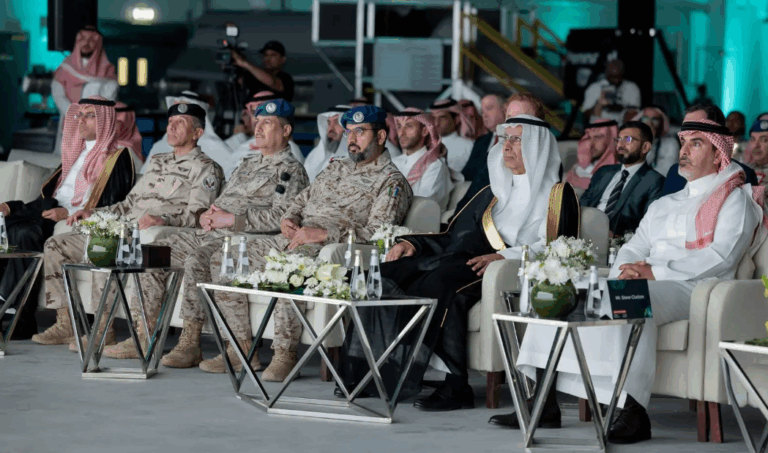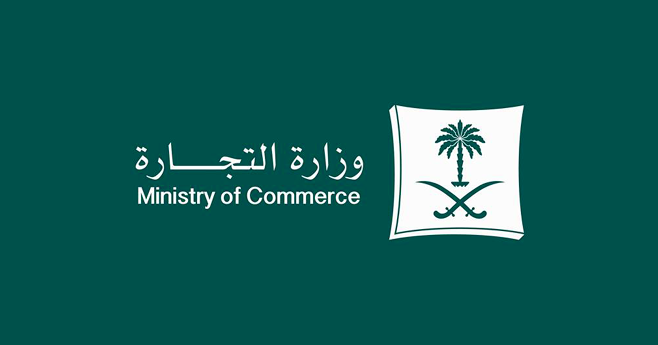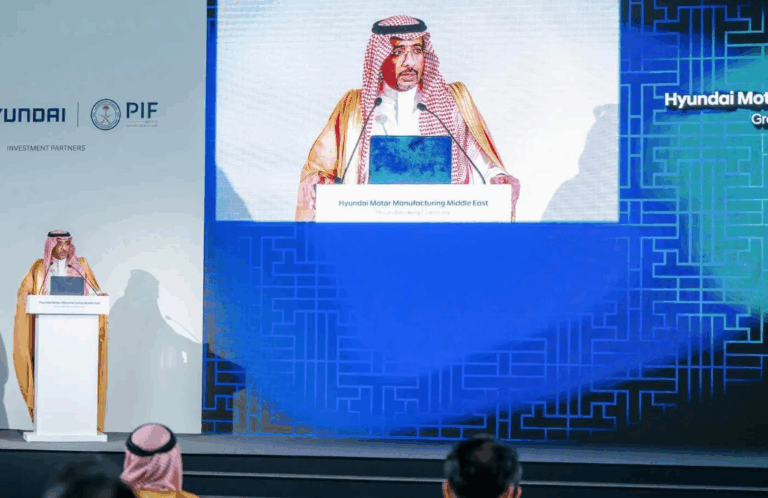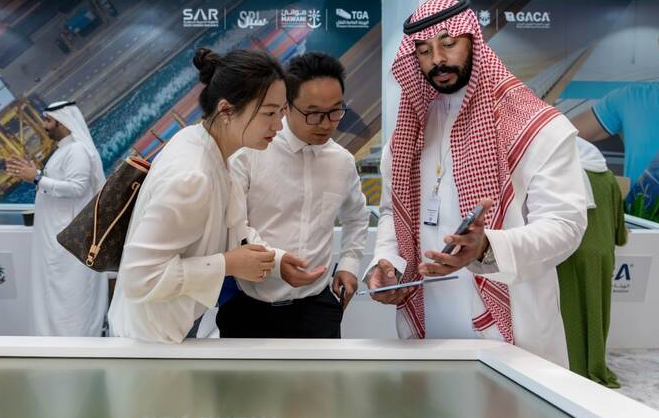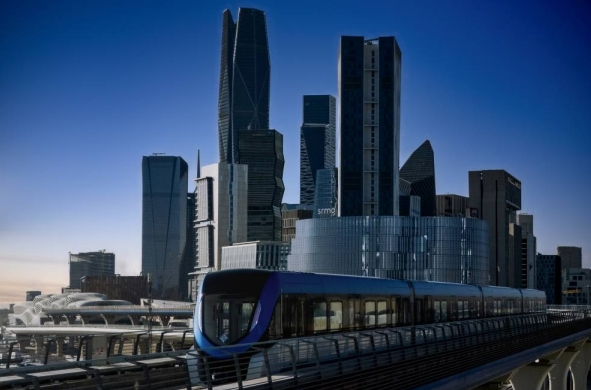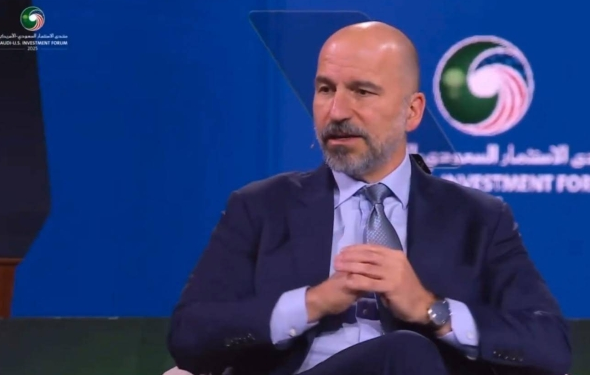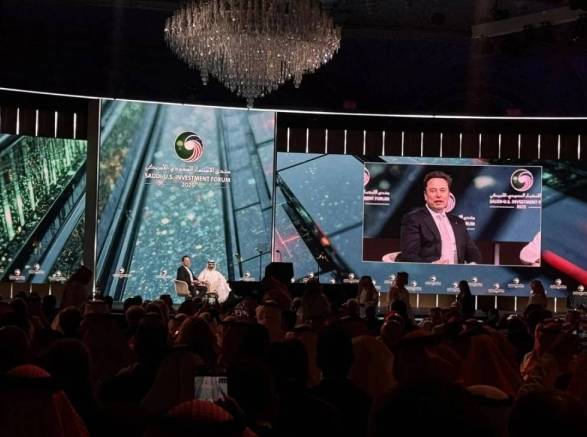**Titular:** *MENA’s First Circular Polymers from Plastic Waste*
**Intro:**
Aramco, TotalEnergies, and SABIC have pioneered the Middle East and North Africa’s first ISCC+ certified circular polymers using oil derived from plastic waste. Processed at Saudi Arabia’s SATORP refinery and PETROKEMYA facilities, the breakthrough supports domestic recycling infrastructure and tackles non-recyclable plastics, aligning with regional sustainability goals and global net-zero commitments.
**Factbox (50w):**
– **First** MENA project converting plastic waste-derived oil into ISCC+ certified circular polymers.
– **Collaboration:** Aramco, TotalEnergies, SABIC. Processed at SATORP refinery (Jubail) and PETROKEMYA.
– **Aim:** Scale Saudi recycling value chain, address non-recyclable plastics.
– **Certification:** ISCC+ ensures traceability.
– **Goals:** Supports Aramco’s net-zero targets, TotalEnergies’ 30% circular polymers by 2030.
**Aramco, TotalEnergies, and SABIC Pioneer Circular Polymers in MENA: A Breakthrough in Plastic Waste Recycling**
In a landmark achievement for the Middle East and North Africa (MENA) region, Saudi Aramco, TotalEnergies, and SABIC have successfully transformed plastic waste-derived oil (PDO) into **ISCC+ certified circular polymers**, marking a significant stride toward sustainable industrial practices. This collaborative effort not only addresses the global challenge of plastic waste but also positions Saudi Arabia as a leader in circular economy innovation.
—
### **A First for MENA: Turning Plastic Waste into Certified Circular Polymers**
The groundbreaking initiative involved processing plastic pyrolysis oil—a product of non-recyclable plastic waste—at the **SATORP refinery** in Jubail, jointly operated by Aramco and TotalEnergies. The oil was then used as feedstock by **PETROKEMYA**, a SABIC subsidiary, to produce high-quality circular polymers certified under the International Sustainability and Carbon Certification (ISCC+) scheme. This certification ensures strict traceability and transparency of recycled materials, validating the project’s environmental integrity.
Key to this process is the ability to recycle **non-sorted plastics**, which are typically difficult to process through traditional mechanical methods. By converting these materials into pyrolysis oil, the project sidesteps landfill and incineration, offering a scalable solution to the growing crisis of end-of-life plastics.
—
### **Building a Domestic Circular Economy in Saudi Arabia**
The project aligns with **Saudi Vision 2030** and the Kingdom’s goals to diversify its economy and reduce reliance on fossil fuels. By establishing a localized value chain for plastic recycling, the collaboration aims to:
– **Reduce plastic waste** in landfills and oceans.
– **Lower carbon emissions** through innovative circular solutions.
– **Leverage existing infrastructure**, such as SATORP and Aramco’s Ju’aymah NGL Fractionation Plant, to scale production cost-effectively.
All facilities involved earned ISCC+ certification, underscoring their commitment to sustainable practices across the supply chain.
—
### **Leadership Perspectives: Sustainability at the Core**
#### **Mohammed Y. Al Qahtani, Aramco**
Aramco’s President of Downstream emphasized the petrochemical sector’s role in driving sustainable innovation:
> *“This project highlights our commitment to circularity and net-zero goals. By repurposing existing assets, we aim to create scalable, low-carbon solutions that benefit both industry and the environment.”*
#### **Bernard Pinatel, TotalEnergies**
TotalEnergies’ President of Refining & Chemicals linked the initiative to broader corporate ambitions:
> *“Advanced recycling is key to our goal of producing 30% circular polymers by 2030. This collaboration leverages our collective expertise to tackle plastic waste while advancing our net-zero vision.”*
#### **Sami Al-Osaimi, SABIC**
SABIC’s EVP Petrochemicals highlighted alignment with national and global sustainability targets:
> *“Through projects like this, we aim to produce 1 million metric tons of TRUCIRCLE™ products by 2030. Innovation and cross-sector partnerships are vital to closing the loop on plastics.”*
—
### **Why This Matters: Environmental and Industrial Impact**
1. **Mechanical Recycling Limitations**: Traditional methods struggle with mixed or contaminated plastics. Pyrolysis offers a complementary solution, recovering value from otherwise unusable waste.
2. **Carbon Reduction**: The process supports Aramco’s net-zero Scope 1 and 2 emissions target by 2050 and TotalEnergies’ net-zero ambitions.
3. **Economic Diversification**: By localizing the circular value chain, Saudi Arabia strengthens its position in sustainable petrochemicals, a sector poised for global growth.
—
### **Collaboration and Future Vision**
The success of this project underscores the power of partnerships. As founding members of the **Alliance to End Plastic Waste (AEPW)**, SABIC and TotalEnergies are part of a global coalition driving innovative waste management solutions. Looking ahead, the trio plans to expand advanced recycling initiatives, combining cutting-edge technology with existing infrastructure to accelerate the transition to a circular economy.
—
### **Conclusion: A Model for Global Sustainability**
By converting plastic waste into certified circular polymers, Aramco, TotalEnergies, and SABIC have set a precedent for the MENA region and beyond. This initiative not only tackles environmental challenges but also demonstrates how industrial giants can pivot toward sustainability without compromising economic growth. As the world grapples with plastic pollution, such collaborations offer a blueprint for scalable, impactful change.
*For more updates on sustainable innovations and circular economy advancements, stay tuned to our platform.*
**FAQs: Aramco, TotalEnergies, and SABIC’s Circular Polymer Initiative**
1. **What makes this plastic-to-circular-polymer project in Saudi Arabia groundbreaking?**
It is the first Middle Eastern initiative to convert plastic waste-derived oil into ISCC+ certified circular polymers, establishing a domestic recycling value chain and addressing non-recyclable plastic waste through advanced pyrolysis technology.
2. **Why is ISCC+ certification critical for this project?**
ISCC+ ensures transparency and traceability of recycled feedstock, verifying sustainable practices across SATORP refinery, Ju’aymah NGL Plant, and PETROKEMYA, enabling the production of globally recognized circular polymers.
3. **How does the plastic pyrolysis oil conversion process work?**
Plastic waste is thermally decomposed into pyrolysis oil (PDO) at SATORP refinery, then processed by PETROKEMYA into certified circular polymers, bypassing mechanical recycling limitations for non-sorted plastics.
4. **Which Saudi Arabian facilities were key to this initiative?**
The SATORP refinery (Aramco-TotalEnergies JV) produced PDO, while PETROKEMYA (SABIC subsidiary) transformed it into circular polymers, supported by Aramco’s Ju’aymah plant—all achieving ISCC+ certification.
5. **How does this project align with Saudi Vision 2030?**
It advances sustainable industrialization, reduces plastic waste, and diversifies the economy by creating a local circular plastics value chain, aligning with environmental and economic diversification goals.
6. **What environmental benefits does this recycling method offer?**
It reduces landfill/incineration reliance, lowers carbon footprints by repurposing non-recyclable plastics, and supports Aramco’s net-zero Scope 1-2 emissions targets by 2050 through circular solutions.
7. **What are Aramco’s net-zero commitments linked to this project?**
Aramco aims for net-zero operational emissions by 2050 by leveraging existing infrastructure to scale cost-effective circular products, aligning with global sustainability standards.
8. **How will TotalEnergies achieve 30% circular polymer production by 2030?**
Through advanced recycling projects like this, TotalEnergies integrates pyrolysis oil into refineries, collaborates with partners, and invests in technology to expand circular polymer output.
9. **What is SABIC’s TRUCIRCLE™ initiative?**
TRUCIRCLE™ promotes circular products, targeting 1 million metric tons by 2030. This project aids SABIC in recycling challenging plastics, supporting customers’ sustainability goals with certified materials.
10. **Why is SATORP refinery pivotal to this initiative?**
SATORP’s advanced refining capabilities enable pyrolysis oil processing into feedstock, demonstrating how existing infrastructure can be repurposed for circular economies without major new investments.
11. **How does this project tackle non-sorted plastic waste?**
Advanced recycling accepts mixed plastics unsuitable for mechanical methods, converting them into pyrolysis oil, thus diverting complex waste streams from landfills and reducing pollution.
12. **What role does the Alliance to End Plastic Waste (AEPW) play?**
As AEPW founders, SABIC and TotalEnergies collaborate with global experts to scale waste management innovations, supporting projects like this to address plastic pollution systematically.
13. **How does advanced recycling differ from traditional methods?**
Unlike mechanical recycling, advanced methods like pyrolysis break down non-sorted plastics chemically, producing oils for new polymers—ideal for contaminated or multi-layer materials.
14. **What long-term economic impacts could this project have in Saudi Arabia?**
It positions KSA as a circular economy leader, attracts green investments, creates jobs in recycling sectors, and reduces reliance on virgin plastic production, boosting sustainable GDP growth.
15. **How will industries benefit from SABIC’s circular polymers?**
TRUCIRCLE™ polymers offer ISCC+ certified sustainable alternatives for packaging, automotive, and construction sectors, helping companies meet ESG goals and regulatory demands for recycled content.
**CTA (Llamado a la Acción):**
Únete al movimiento hacia la economía circular y descubre cómo la innovación en reciclaje avanzado está transformando el futuro de los plásticos. Visita los sitios web de [Aramco](https://www.aramco.com), [TotalEnergies](https://www.totalenergies.com) y [SABIC](https://www.sabic.com) para conocer más sobre sus iniciativas de sostenibilidad. ¡Comparte este artículo y difunde la importancia de colaborar para un planeta más limpio!
**Conclusión:**
La exitosa colaboración entre Aramco, TotalEnergies y SABIC marca un hito histórico para la región MENA al demostrar que los residuos plásticos pueden convertirse en recursos valiosos. Este proyecto no solo impulsa la creación de una cadena de valor local alineada con la Visión 2030 de Arabia Saudita, sino que también establece un precedente global para la economía circular. Al integrar tecnologías innovadoras como el reciclaje químico y certificaciones como ISCC+, las empresas involucradas no solo reducen el impacto ambiental de los plásticos, sino que también allanan el camino hacia metas climáticas ambiciosas, como la neutralidad de carbono y la producción de polímeros circulares a gran escala. El futuro de la sostenibilidad exige colaboración, y este es un ejemplo inspirador de cómo la industria puede liderar el cambio.
**Agradecimiento:**
Agradecemos a Aramco, TotalEnergies y SABIC por su liderazgo visionario y su compromiso con la innovación sostenible. Reconocemos también el papel crucial de la Alliance to End Plastic Waste (AEPW) en fomentar soluciones colectivas para los desafíos globales de gestión de residuos. Este logro conjunto demuestra que, cuando la industria, la tecnología y la responsabilidad ambiental convergen, es posible construir un futuro donde los plásticos no sean un problema, sino parte de la solución. ¡Sigamos trabajando unidos por un mundo más circular y resiliente! 🌍♻️
—
*¿Te gustaría conocer más sobre proyectos de economía circular o cómo implementar prácticas sostenibles en tu sector? ¡Déjanos tus comentarios y suscríbete para recibir las últimas actualizaciones!*



